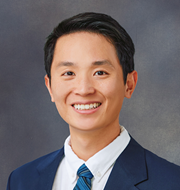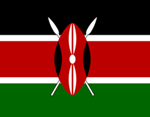Isaac Kim

Isaac is an MD/PhD student at Brown University. As an undergraduate at Brown, he majored in applied math-computer science and conducted research on racial disparities in cancer genomic sequencing projects, which sparked his interest in global health. After matriculating into the MD/PhD program, he completed his PhD in computational biology during which he developed an amplification and sequencing method for the Epstein-Barr virus (EBV) in Burkitt lymphoma (BL) tumor samples and leveraged machine learning to develop survival prediction and molecular subgroupings models for Burkitt lymphoma.

Epstein Barr virus (EBV) variation in EBV-associated cancers
Moi University School of Medicine
Kenya
What does the Kean Fellowship mean to you?
Every summer throughout high school, I participated in service trips to the Dominican Republic and Nicaragua. My time working with patients in these countries inspired my desire to be a physician-scientist seeking to address global health disparities. Unfortunately, throughout my PhD, while I have worked with countless samples from Kenyan patients, I have completed all analyses here at Brown. Thus, through the Kean Fellowship, I appreciate the opportunity to travel to Kenya where I can directly work with patients and garner a better understanding of the challenges in global health. Furthermore, the Kean Fellowship gives me the opportunity to meet and develop lasting relationships with scientists abroad.
What do you anticipate learning?
By adulthood, over 90% of the global population has been infected with the Epstein-Barr virus (EBV), which is primarily transmitted via saliva. While most cases result in a mild upper respiratory infection or infectious mononucleosis, EBV infection can longer-term lead to various cancers in a small subset of patients. There is extensive variation in the virus including two types. My own PhD work has identified specific EBV variants associated with worse clinical outcomes in BL patients. Overall viral variation and its role in oncogenesis and clinical outcomes, however, is poorly understood. Thus, my project aims to study viral variation in Africa to allow for broader assessment and the potential to discover variation specific to African cancers. I'm also excited to engage in cultural exchange with scientists of different backgrounds and perspectives.
What interests you about tropical medicine and what problems are you interested in solving?
My interest in tropical medicine and global health began during my summer in a village in the Dominican Republic in which I saw hundreds of people with various treatable infectious diseases lining up for medical care due to the lack of medical infrastructure. I found the ideal dissertation advisor in Dr. Jeffrey Bailey who studies the Epstein-Barr virus and Burkitt lymphoma (BL) and has extensive collaborations with overseas institutions such as AMPATH. While the curative rate of EBV-negative BL in developed countries is greater than 90%, that of EBV-positive BL in sub-Saharan Africa has remained at 30-50% for over 50 years. Under Dr. Bailey, I crafted a dissertation that would suit my interests by better defining the relationship between specific EBV variation, oncogenesis, and BL patient survival. Through this work, I have collaborated extensively with scientists in Kenya as well as the Infectious Disease Epidemiology and Ecology Lab (IDEEL), a group of principal investigators who seek to better understand infectious diseases and address their associated health disparities. I now seek to characterize EBV variants associated with risk of EBV-associated cancers and their outcomes in western Kenya by sampling the virus from cancer patients in complementary ways. My overall goal for this fellowship and my MD/PhD training is to learn the skills necessary to become an independent physician-scientist at the intersection of genomics and clinical medicine in the context of infectious diseases and global health.